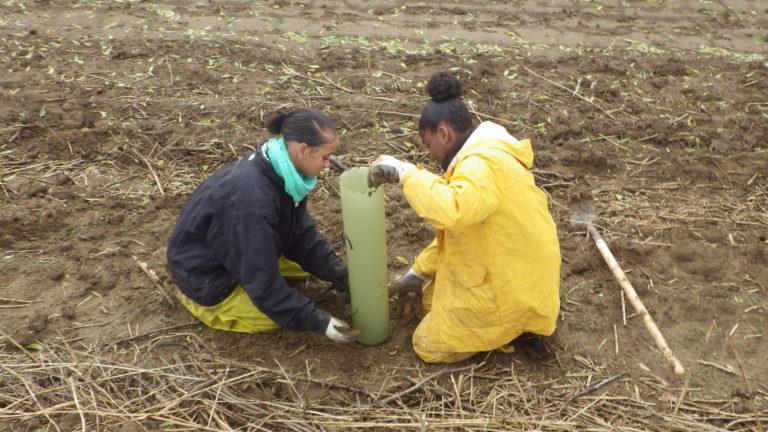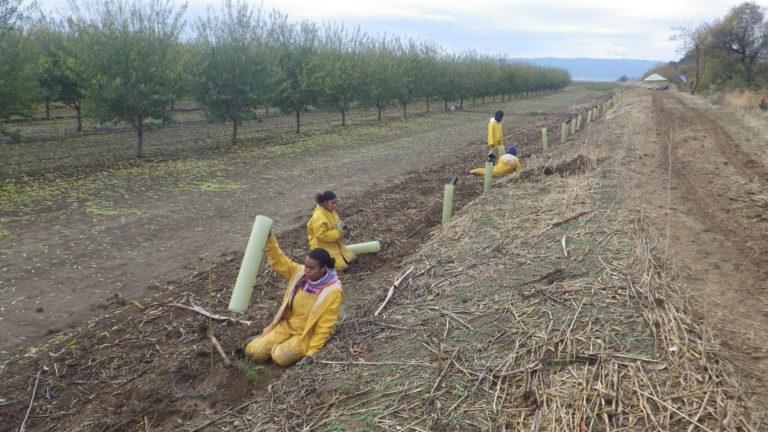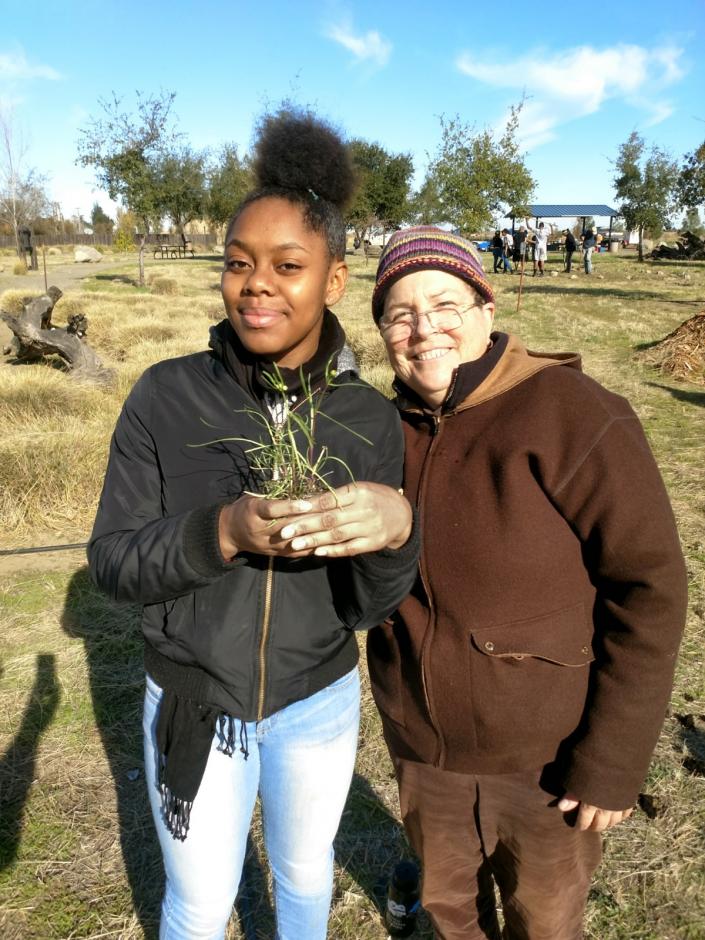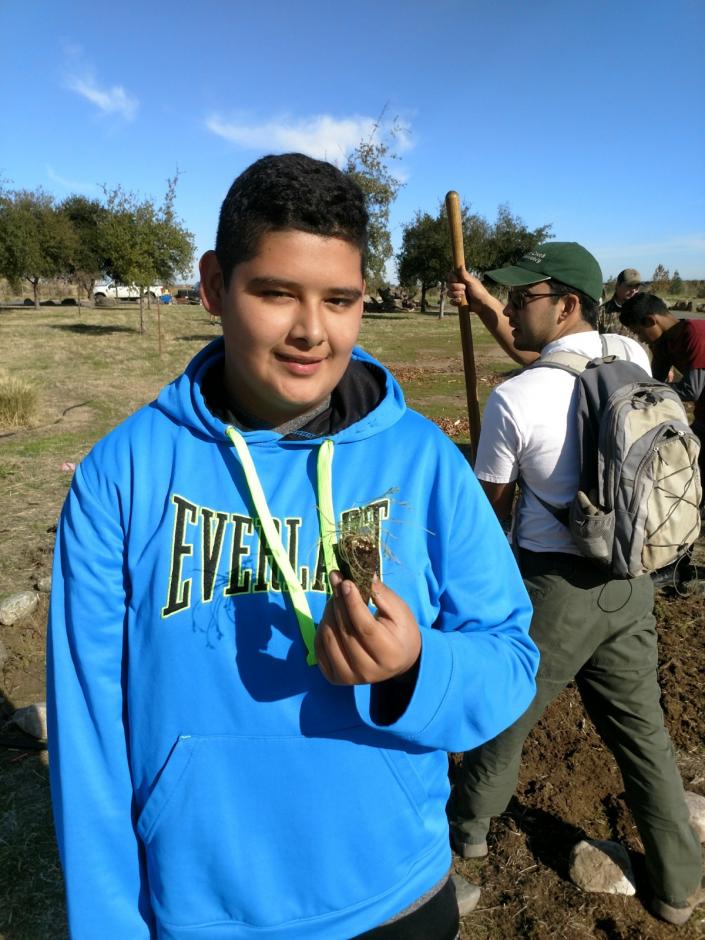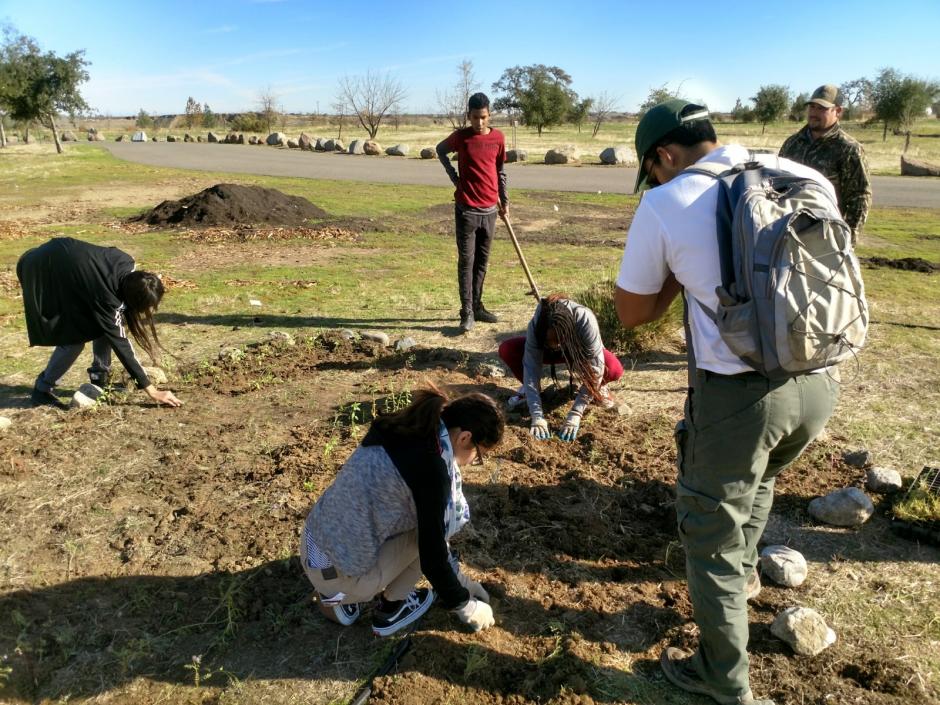A Little Dirt Never Hurt Anyone
Since the beginning of Sacramento Charter High School in 2003, biology students have had the opportunity to be involved in St. HOPE’s partnership with the Coalition for Land-Based Learning (CLBL), a non-profit organization whose mission is to inspire, educate, and cultivate future generations of farmers, agricultural leaders, and natural resource stewards. Each year, twenty Sac High freshmen attend three field trips through CLBL’s SLEWS (Student and Landowner Education and Watershed Stewardship) program where they restore native habitat while applying science concepts from the classroom to real world situations.
This year, students worked at both the Clark and Rice Ranches in Yolo County where they planted 230 native plants including manzanita, buckwheat, sage, fuschia, and wild rose and installed over 1800 feet of irrigation lines. Their final trip of the year will be in April, where they will mulch and weed around their plantings, install barn owl boxes, and perform quality control measures to make sure that their plants are thriving. The ultimate goal of the projects is to increase the biodiversity of the area by planting native plants and restoring habitat – all while having fun and getting their hands dirty!
In addition to restoring habitat, students work in small groups with restoration mentors who are typically UC Davis graduate students or professionals from the ecology field, so they are exposed to future education and career options through their involvement as well. At the end of each day, students are asked to summarize their experiences using one word through a closing circle. Students often use words such as refreshing, interesting, hard, interactive, outside, yummy (referencing the typical burrito lunch), dirty, service, and fun to describe their day! Those students who excel in the program are selected to be part of the year two program called the FARMS Leadership program where they work with students from other area high schools to develop their agricultural knowledge while implementing service leadership projects.

